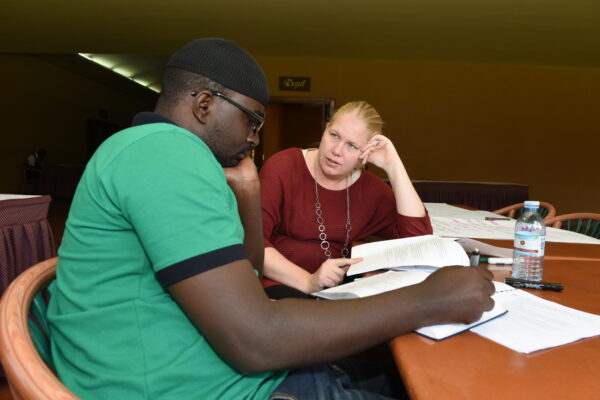CRCC’s Executive Director Brie Loskota was interviewed on IndoctriNation, a podcast “covering cults, manipulators, and protecting yourself from systems of control.” She shared her perspective about leadership and change-making, based on her experience training civic and religious leaders in the United States and across the globe. Host Rachel Bernstein asked her questions about how leaders can abuse their positions.
Loskota said:
The job of a leader is to make other people leaders. That’s the No. 1 rule of leadership is that what you’re trying to do is help other people engage in their full potential as human beings and then live lives of flourishing. If you want that, why would you want to hold someone else in a position of subservience? Why would you ever create a system where the knowledge that you have can’t be shared in a way that is accessible and powerful for someone else? And why would you do that in a way that creates you as a gatekeeper to something that they should be able to access as part of their flourishing.
In order to make a difference without abusing their positions, Loskota said that leaders need both humility and hubris:
In doing change-making in the world, you have to oscillate between the two ideas of humility and hubris. You have to have enough hubris to think you can change the world, and you have to be humble enough to understand your role in that and your limits. … We actually need those two things held in proper tension. A lot of what we have now especially in pop psychology and leadership studies is we have one word solutions to everything. So the latest thing is that you need to have grit, or love will solve everything. Everybody is writing one-word books. … The human experience is far too complex, and it’s not about having one thing that is the right solution. … It’s about having enough things that are in proper harmony with each other that you are not out of balance. We tend to think of a balance in terms of work and life. I don’t think we think of a harmonious set of characteristics or traits that enable us to walk through a very unbalanced world. And that’s the other big buzzword–resilience–that’s a form of resilience.
The interview went in depth into Loskota’s work with USIP’s Generation Change. The young people she has worked with, especially those from South Sudan, do peace-building work despite having seen the worst of humanity and experienced significant traumas.
There is a lot of components that are required for people to act on their agencies, and when faced with difficult circumstances to make positive choices for themselves, and it’s really understandable why they don’t. And at the same time, there are people who do, and it’s pretty remarkable that they are able to, that they are able to transcend circumstance and systems and do work that is valuable.



